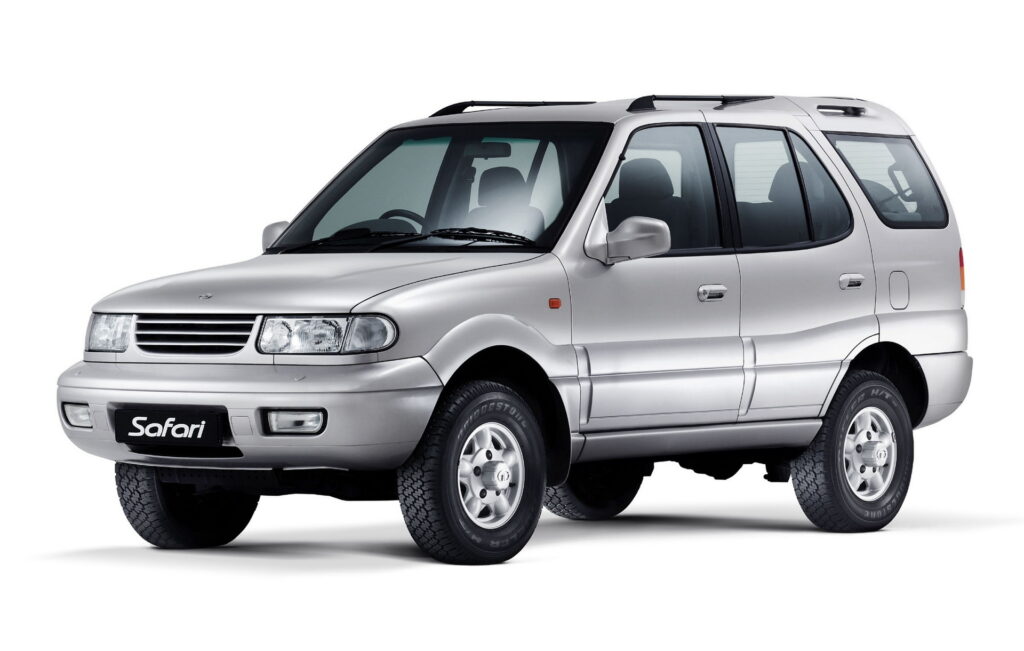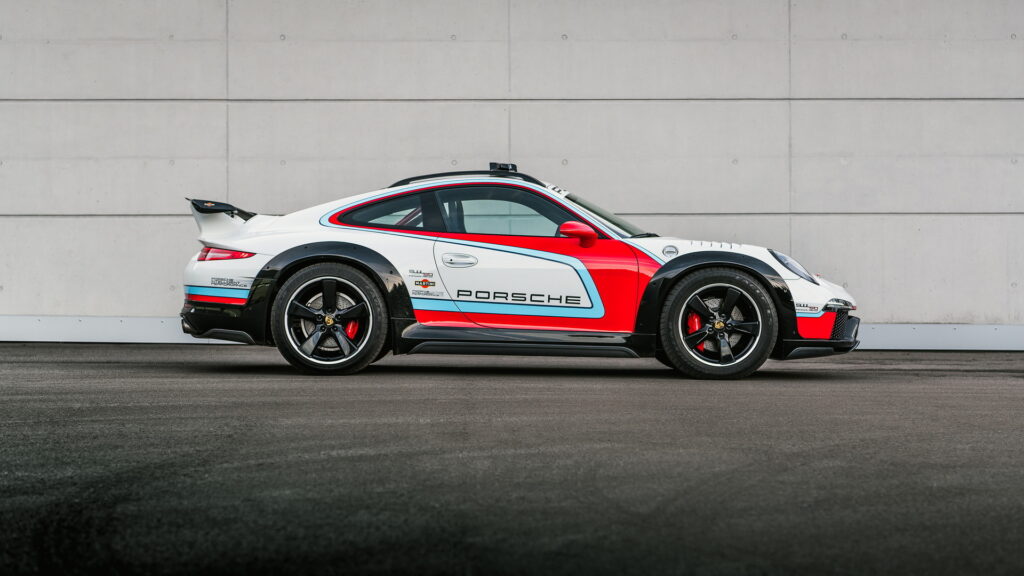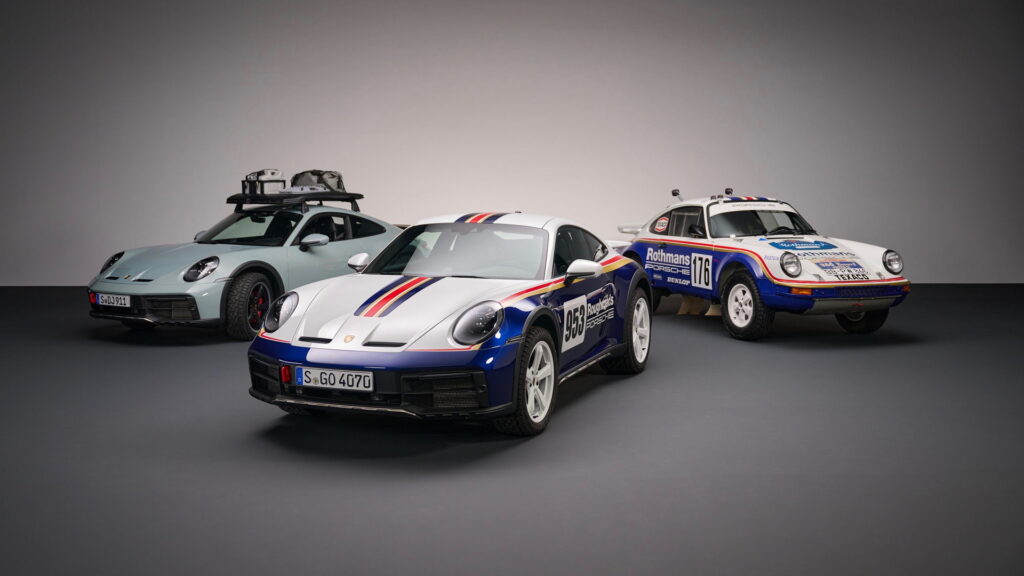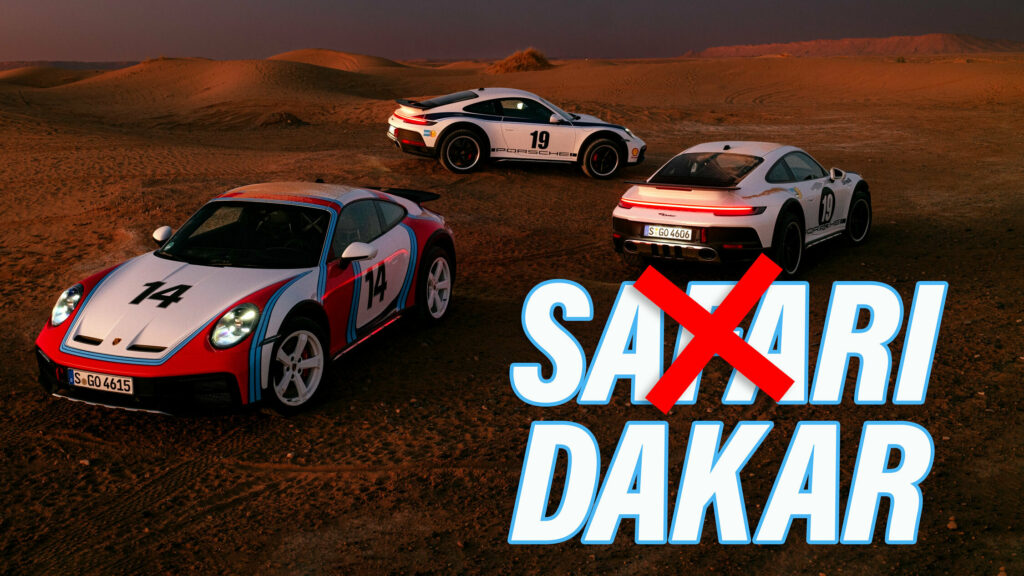As with all of the best enthusiast vehicles, the Porsche 911 Dakar comes as the result of a dedicated team of people battling external, and even internal resistance to make the car a reality. However, when development of the off-road 911 started in 2012, the team had a very different name chosen for it: “Safari.” That name is related to historic 911s that competed in the World Rally Championship at events like the Safari Rally in Kenya. In fact, the team called an early prototype of the car the “911 Vision Safari.”
Unfortunately, though, Tata holds the trademark for “Safari” as it relates to automobiles, because it produces a midsize SUV under the name, and has done so since 1998. Porsche, though, thought that the automaker might let it use the name since the products were so different.
“We talked to them,” Thomas Krickelberg, the director of the program, recently told Edmunds. “But they didn’t give us permission for that. That was Option A. And then we switched to Dakar.”
Read: 2023 Porsche Dakar Is The Slowest 911 Since The ’80s, But We Want One So Badly

Even that name, though, wasn’t easy to get. Although “Dakar” is part of the name of a famous rally, the event is named after the capital city of Senegal, where it historically ended. Porsche thought that would make the name free to use, but as it turned out, it still needed to get permission from the rally’s organizers, the Amaury Sport Organization.
Fortunately, it agreed to allow the German automaker to use the name, but at a price. Krickelberg did not reveal how much the rights to the name cost Porsche, but at least it had a name.
In addition to facing difficulties from external forces, though, the project’s leaders say they faced resistance from within Porsche as well. The higher-ups, they say, didn’t really understand the point of the project, and didn’t see the demand for it.

According to Kirckelberg, the world could have had a 911 Dakar as early as in 2016, but for the resistance from the marketing and sales departments, and momentum for the project stalled as a new-generation of 911 launched in 2020. That required the team to go back to develop the car for the new platform.
Once they did that, the team invited Porsche’s marketing and sales departments to Weissach to drive the new car, and shortly after, the project was given the green light.
“Then they understand what we are talking about,” said Achim Lamparter, the general project manager for the 911 Dakar. “It’s sometimes difficult for them to see on a piece of paper. It helps if they get directly put in the car.”
The car has been such a success that rumors are now floating around that the same rugged off-road treatment may be given to other models. Krickelberg said, though, that if that happens, the Dakar name won’t be used again. He hinted, though, that the company may ask Tata if it has changed its mind about lending it the Safari name.





